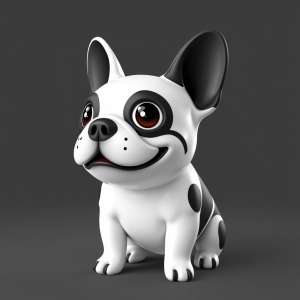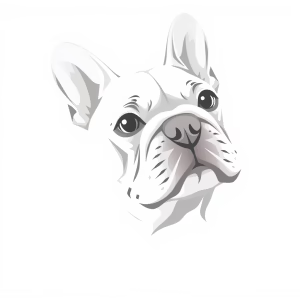How Parasites Affect French Bulldog Health
French Bulldogs are small, sweet, and full of personality. These adorable dogs are known for their big ears, playful nature, and deep love for their owners. They enjoy cuddles, short walks, and always want to be close to family. But even though they may seem strong and fearless, French Bulldogs are not immune to health problems — one of the most common being a parasite infection.
A parasite is a harmful organism that lives inside your dog and steals nutrients from its body. Some parasites are tiny worms you can see, while others are invisible to the eye. If not treated on time, these invaders can cause serious health issues for your pet.
That’s why it’s so important for every French Bulldog owner to learn how parasites spread, what symptoms to look for, how to treat them, and how to prevent future infections. With the right care and early action, your dog can live a happy, healthy, parasite-free life.
What Are Internal Infections?
Internal infections happen when small organisms like worms or microscopic bugs enter your dog’s body and multiply. These invaders take nutrients from your pet, weakening their health over time. Common types include intestinal worms, protozoa, and even heartworms, which are spread by mosquitoes.
🐛 Common Types of Internal Parasites in French Bulldogs
Intestinal Worms: These are the most common and include roundworms, hookworms, and tapeworms. They live in the digestive system and cause many health issues.
Protozoa: Single-celled organisms like Giardia and Coccidia can cause diarrhea and stomach problems.
Heartworms: Spread by mosquitoes, heartworms infect the heart and lungs, causing serious damage if not treated quickly.

🚨 7 Signs Your French Bulldog Might Have an Internal Infection
- Vomiting or diarrhea
- Loss of appetite
- Weight loss
- Swollen belly
- Weakness or tiredness
- Coughing (especially with heartworms)
- Poor coat condition
If you notice any of these signs, contact your veterinarian immediately.
How Do Dogs Get Internal Infections?
French Bulldogs can get these infections by drinking contaminated water, eating dirty soil, or close contact with infected animals. The harmful organisms enter their body and start causing damage.
🩺 Diagnosis and Treatment
Your vet will likely examine your dog and test a stool sample to find signs of infection. Treatment usually involves giving medication to kill the worms or other organisms. In some cases, especially with heartworms, treatment may take longer and require close monitoring.
| Parasite Type | Common Name | Symptoms | Treatment |
|---|---|---|---|
| Roundworm | Toxocara | Diarrhea, bloated belly | Deworming pills |
| Hookworm | Ancylostoma | Weakness, blood in stool | Deworming pills |
| Whipworm | - | Diarrhea, weight loss | Deworming pills |
| Giardia | Protozoa | Diarrhea, vomiting | anti-protozoal medication |
| Heartworm | Dirofilaria | Cough, fatigue | Vet-administered heartworm therapy |
🛡️Prevention Tips for Owners
- Regular veterinary check-ups and vaccinations
- Use of preventive medicine as recommended by your vet
- Keep your dog’s environment clean and avoid contact with sick animals
- Provide clean drinking water
🌐 Useful Links
▶️ YouTube
❓ FAQ – Parasites in French Bulldogs
Q: Can humans catch parasites from dogs?
A: Yes, some parasites like roundworms or hookworms can spread to humans. Always wash your hands after handling dog waste.
Q: How often should I deworm my French Bulldog?
A: Puppies should be dewormed every 2-3 weeks until 12 weeks old. Adults usually need it every 3–6 months or as your vet recommends.
Q: Is diarrhea always a sign of a parasite?
A: No, diarrhea can also come from diet changes, infections, or stress. A vet visit is the best way to know for sure.
Q: Are heartworms common in French Bulldogs?
A: Heartworms can affect all breeds. If you live in an area with mosquitoes, your dog is at risk without prevention.
❤️ Final Thoughts
Internal parasites are a serious problem, but they are preventable. By knowing the signs, visiting the vet regularly, and giving your dog the right medicine, you can protect your French Bulldog from suffering.
A healthy dog is a happy dog — and a happy dog means a happy home.

